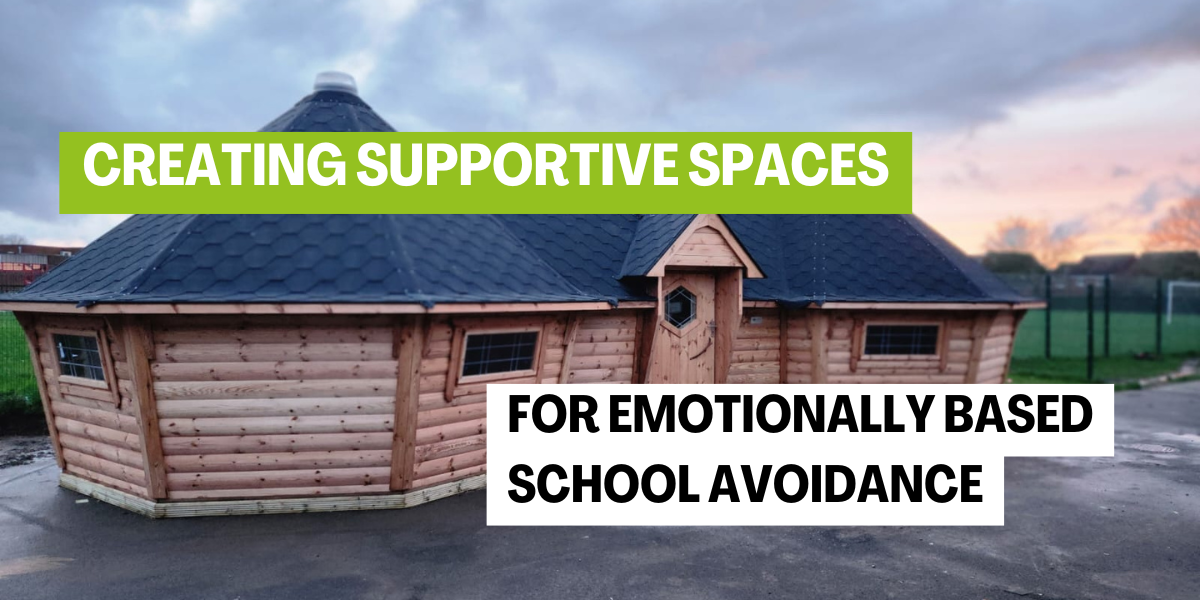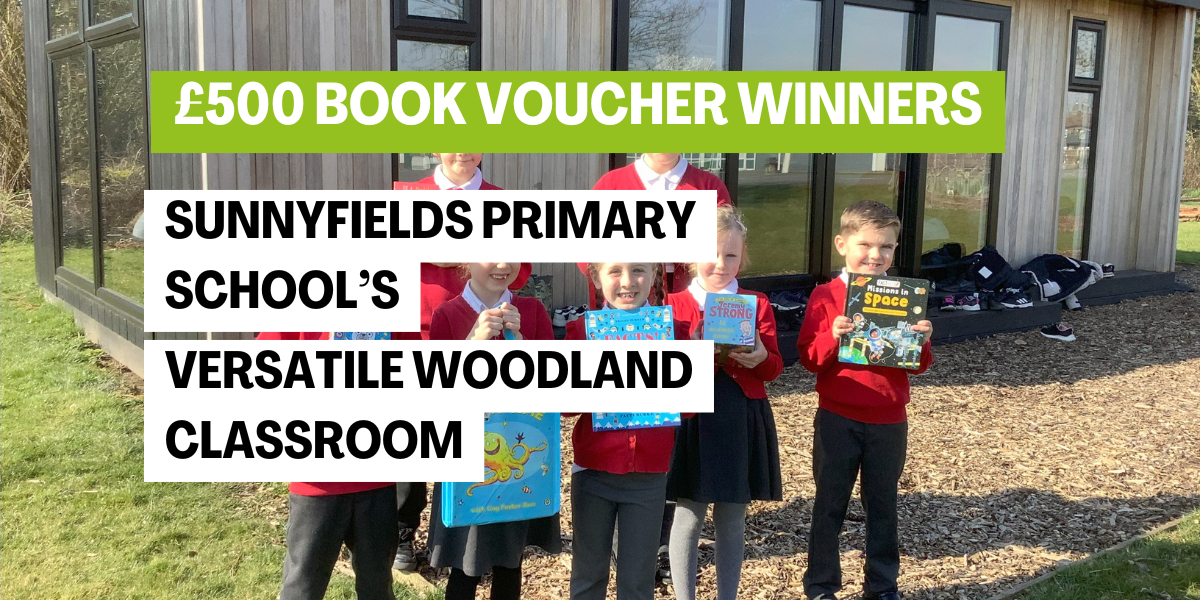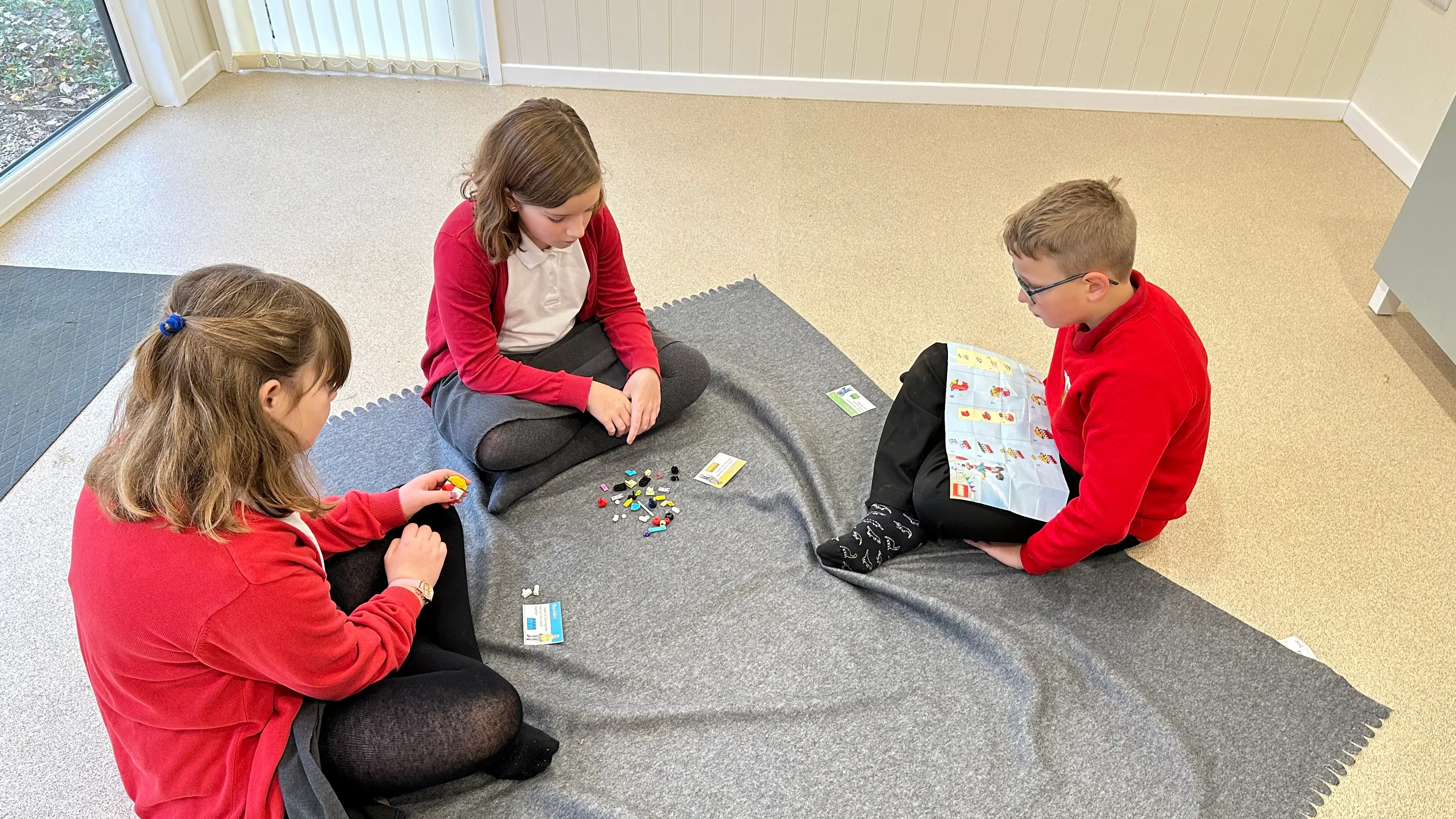Join the Forest School Revolution!
Forest school and bushcraft lessons are becoming increasingly popular among schools looking to diversify their curriculum and get their students outside in nature. They are also becoming more and more popular with parents and carers looking at the educational facilities that each of their local schools can offer to ensure their children have a vast array of learning opportunities available to them. With benefits to physical health, mental health and educational attainment, we are proud advocates for forest school!
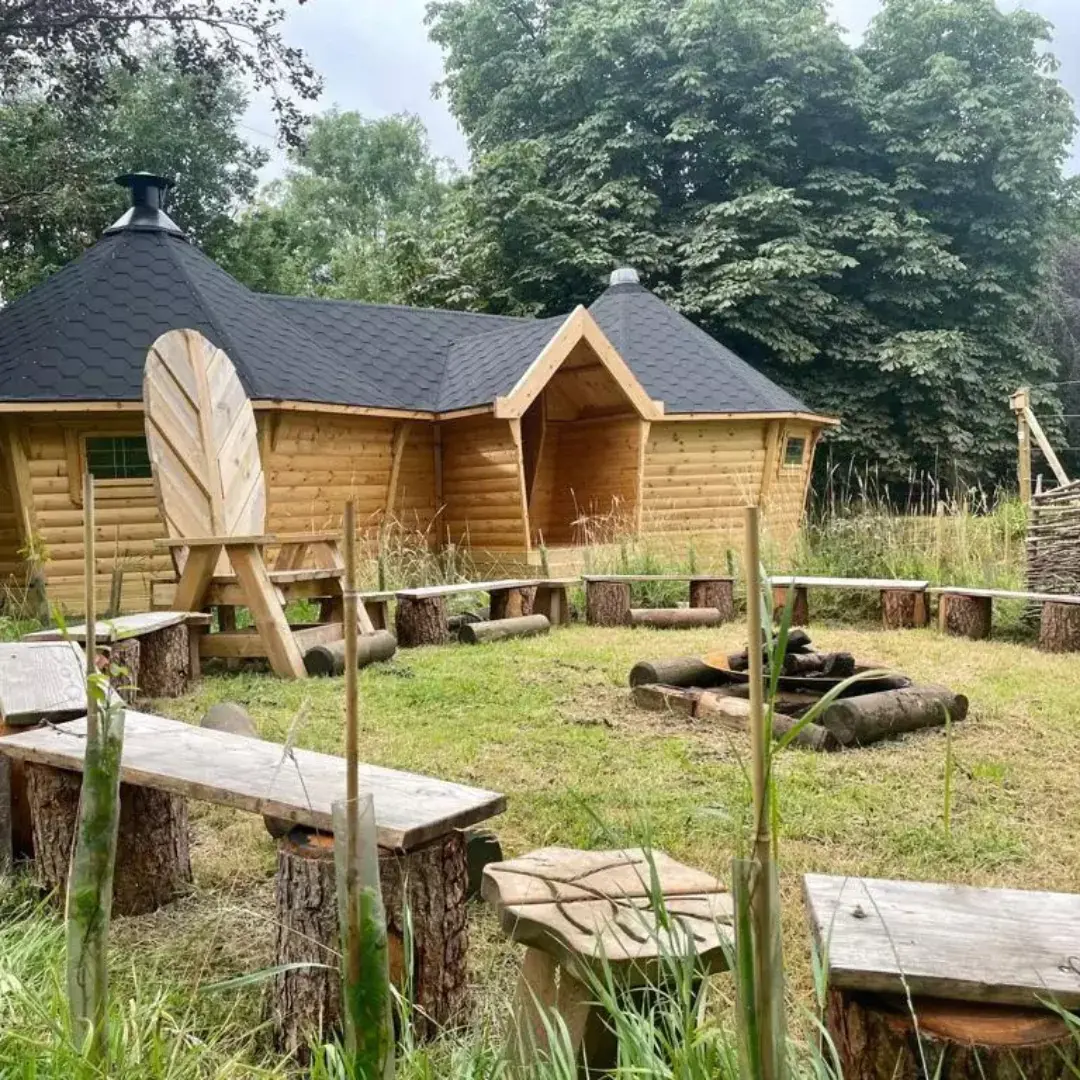
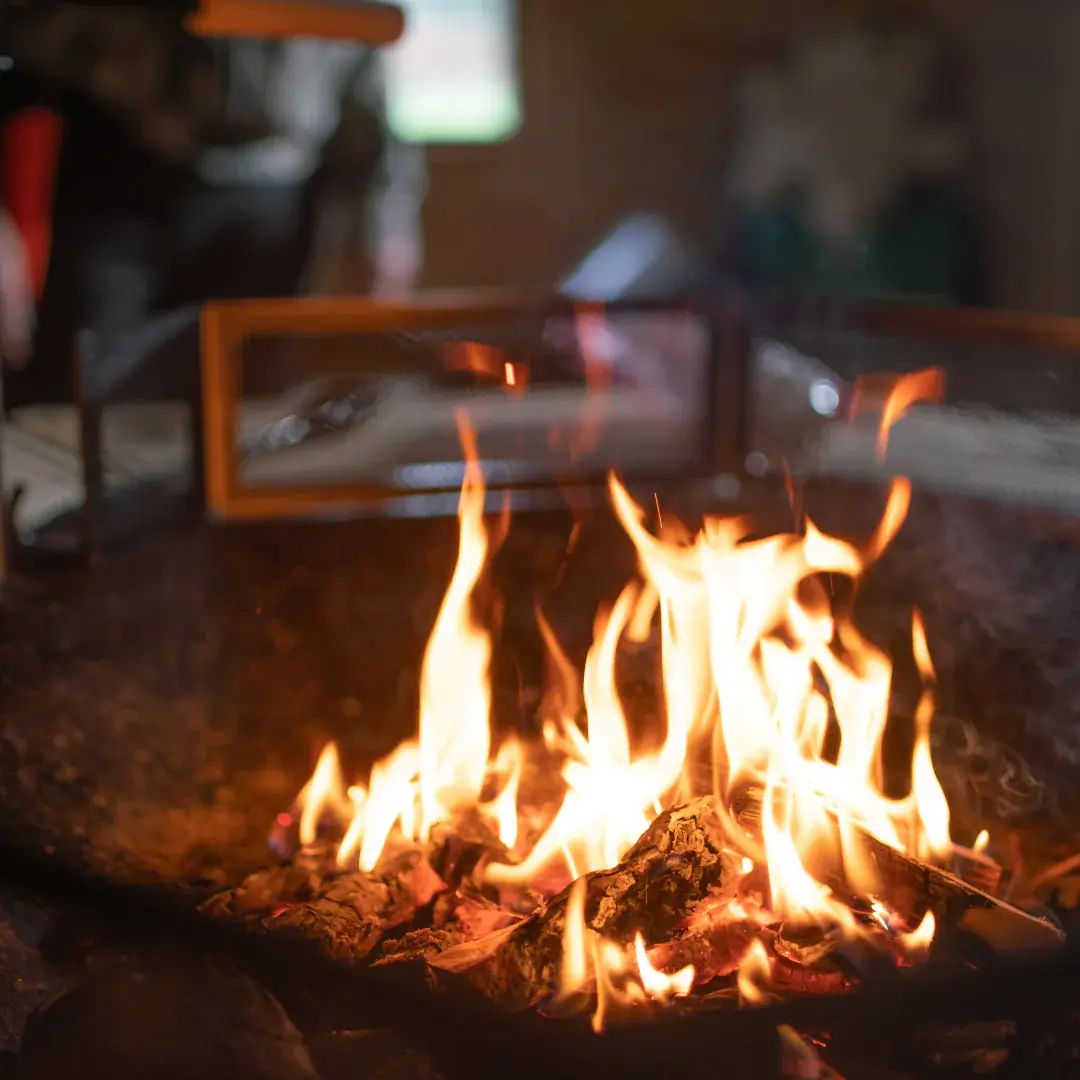
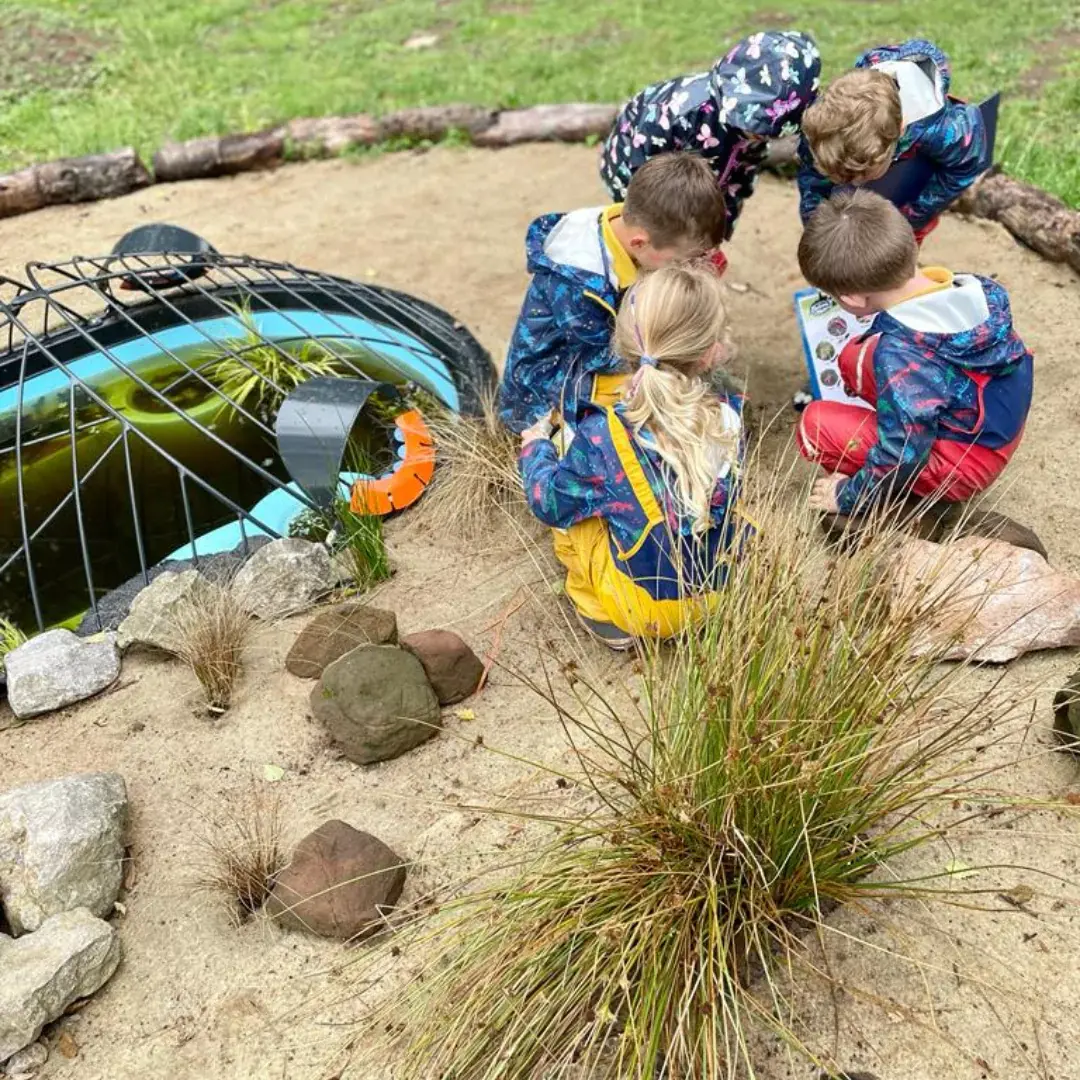
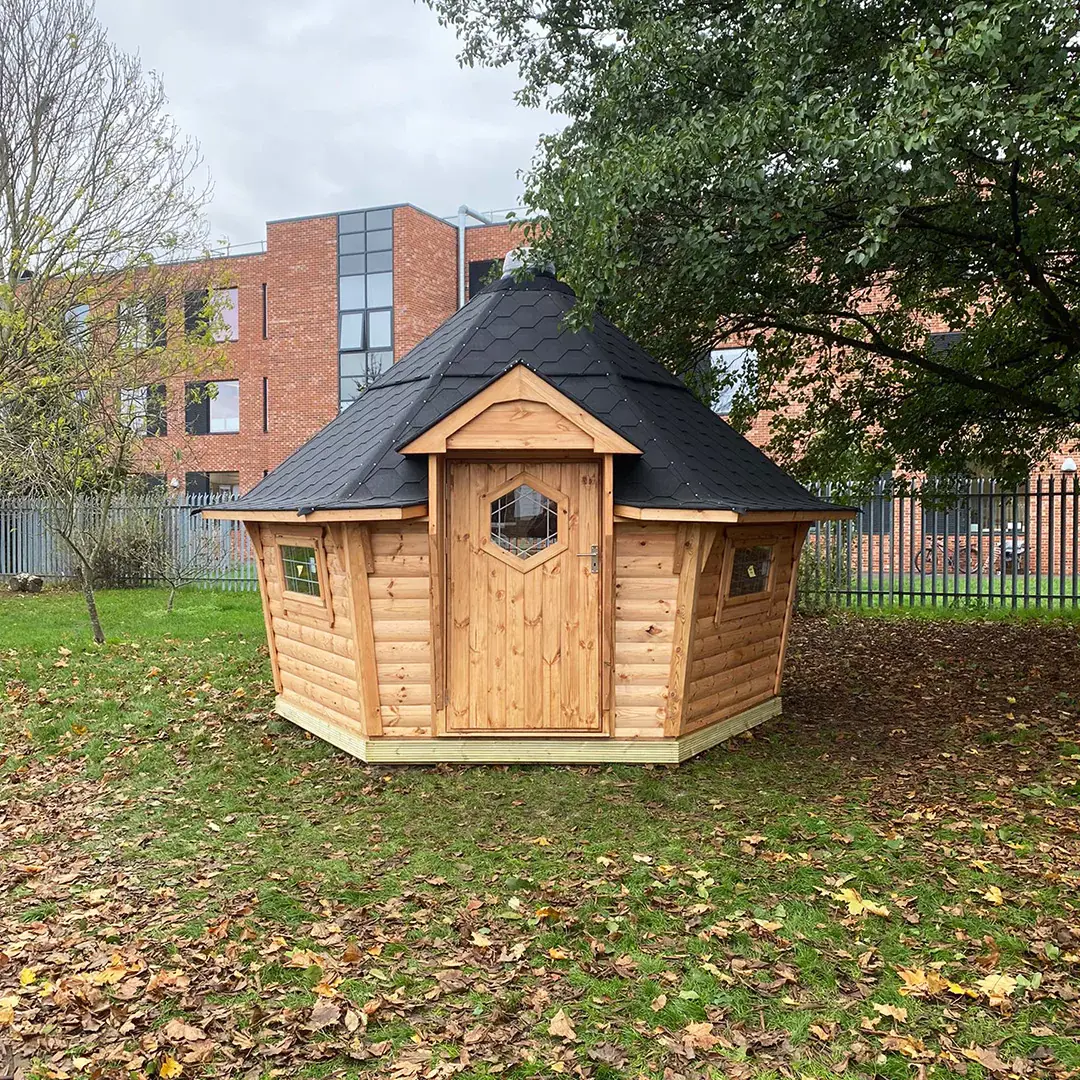
Forest School in Action
With Cabins for Schools, you can give your students the perfect spot for outdoor learning. Why should forest school have to stop for the weather? With a log cabin, your school can deliver outdoor education all year round. Whether you choose a cabin with a solar pipe to let the natural light flood in, or a BBQ cabin equipped for teaching students about fire safety and cooking, we can help you to cultivate the perfect forest school space.
The Benefits of Outdoor Learning
Improved Academic Achievement
Engaging in outdoor learning has been shown to positively impact academic performance through interactive and stimulating environments
Enhanced Cognitive Skills
Time in nature strengthens problem-solving abilities, focus, attention span, and executive function skills, which are essential for decision-making and planning
Physical Health
Engaging in outdoor learning involves physical activity, promoting fitness, motor skills, and a healthy lifestyle
Social Skills Development
It improves essential social interactions, fostering skills such as communication, collaboration, and teamwork. It also helps with conflict resolution
How creating a forest school with a log cabin will support the practice of soft skills
Different outdoor learning experiences offer opportunities for personal and learning skills development. Here are just some of the ways that adding a log cabin to your school grounds and introducing a forest school will create more scope for integrating soft skill practice in education…
BBQ Cabins: Fire Safety
If you opt for one of our log cabins with a central BBQ grill, you can implement fire safety and cooking lessons into your forest school or outdoor learning curriculum. This creates opportunities for critical thinking and the development of risk management skills, identifying and dealing with potential hazards and decision making. Risk-taking in a controlled, safe environment can help to develop a child’s self-confidence, resilience, the expansion of their personal boundaries and the improvement of executive functioning abilities too.

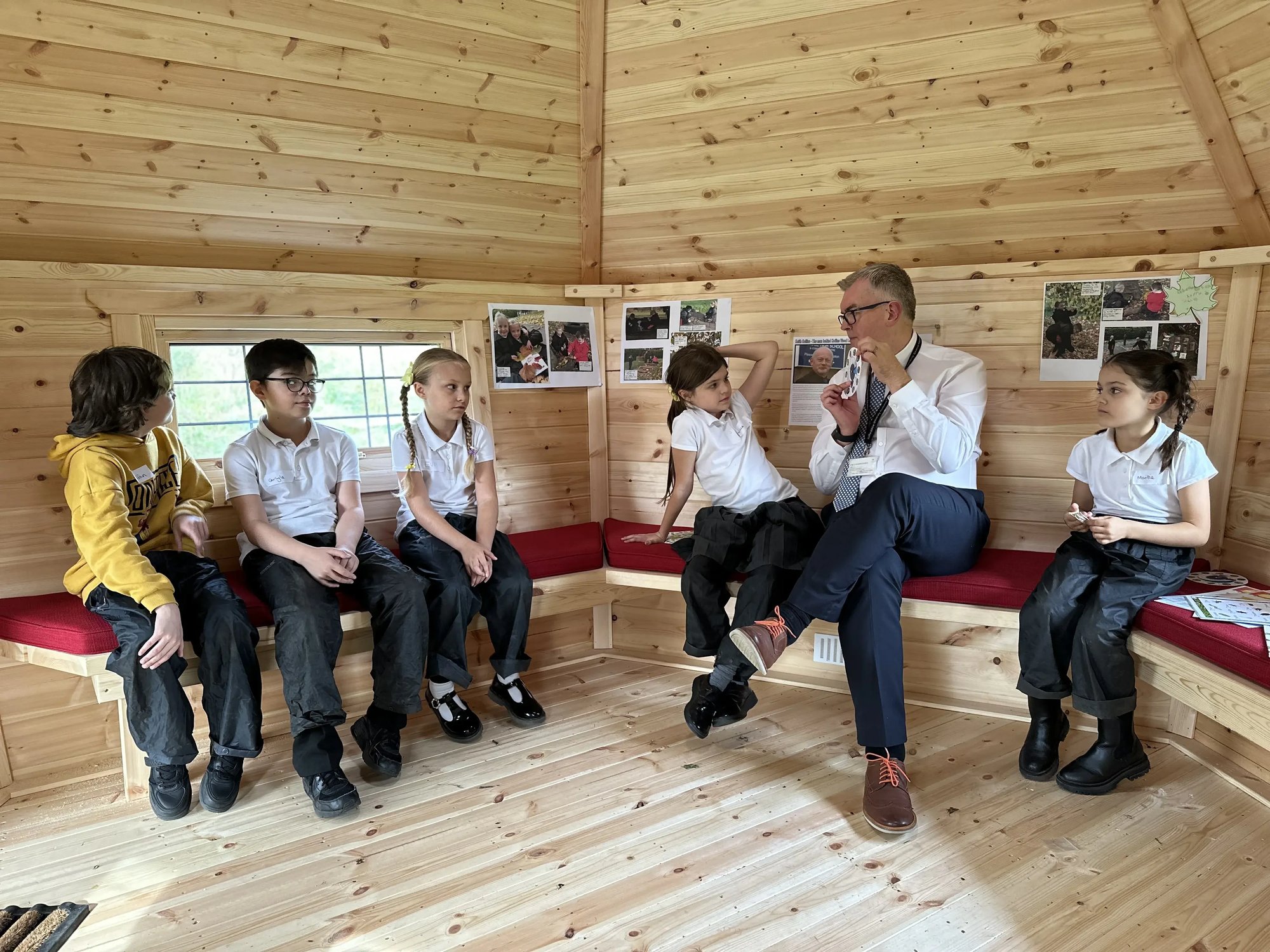
Opportunities for Collaborative Learning
Creating or developing a forest school programme with an outdoor classroom or log cabin opens up endless opportunities for group work. Students can develop their teamwork skills as well as practising conflict resolution. Having the skills to empathise and collaborate with others affects school cohesion, friendships and wellbeing. When students are sat at the same desks next to the same people everyday, there is minimal opportunity to branch out and form new friendships or work with a variety of peers. Forest schools and outdoor learning environments provide students with new and alternative spaces to try out new activities together as part of a team. Having a forest school programme also creates opportunities to develop problem-solving abilities.
Practice Interpersonal & communication skills
Traditional classroom setups often limit opportunities for peer-to-peer communication, which is essential for developing interpersonal and communication skills. While these setups are effective for teaching academic lessons and hard skills, they may not be as conducive to practicing key soft skills. Our circular log cabins are designed with communication in mind. By arranging students in a circle, eye contact and active listening are naturally encouraged, creating an ideal environment for the development of effective communication skills—an essential part of every student’s learning journey.
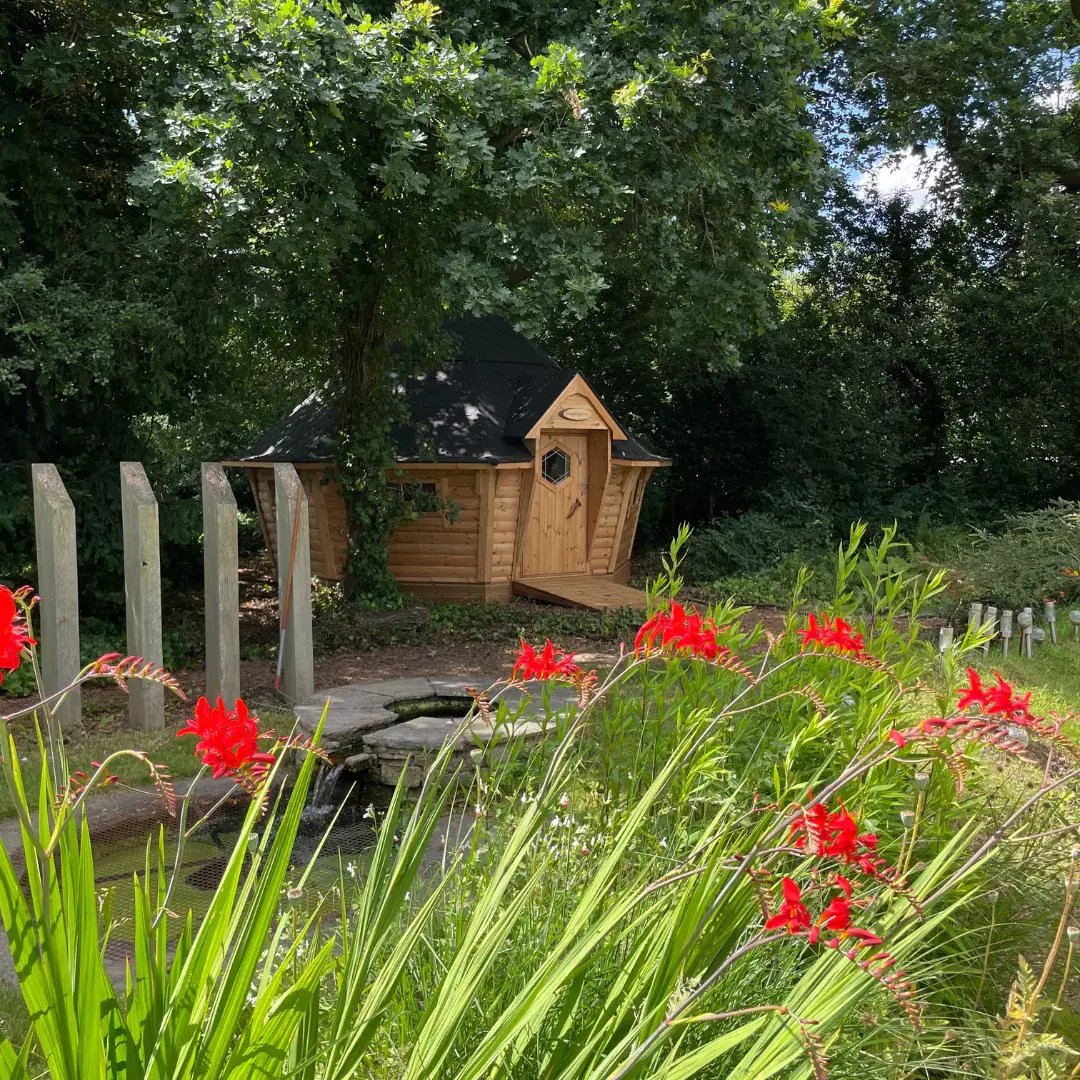
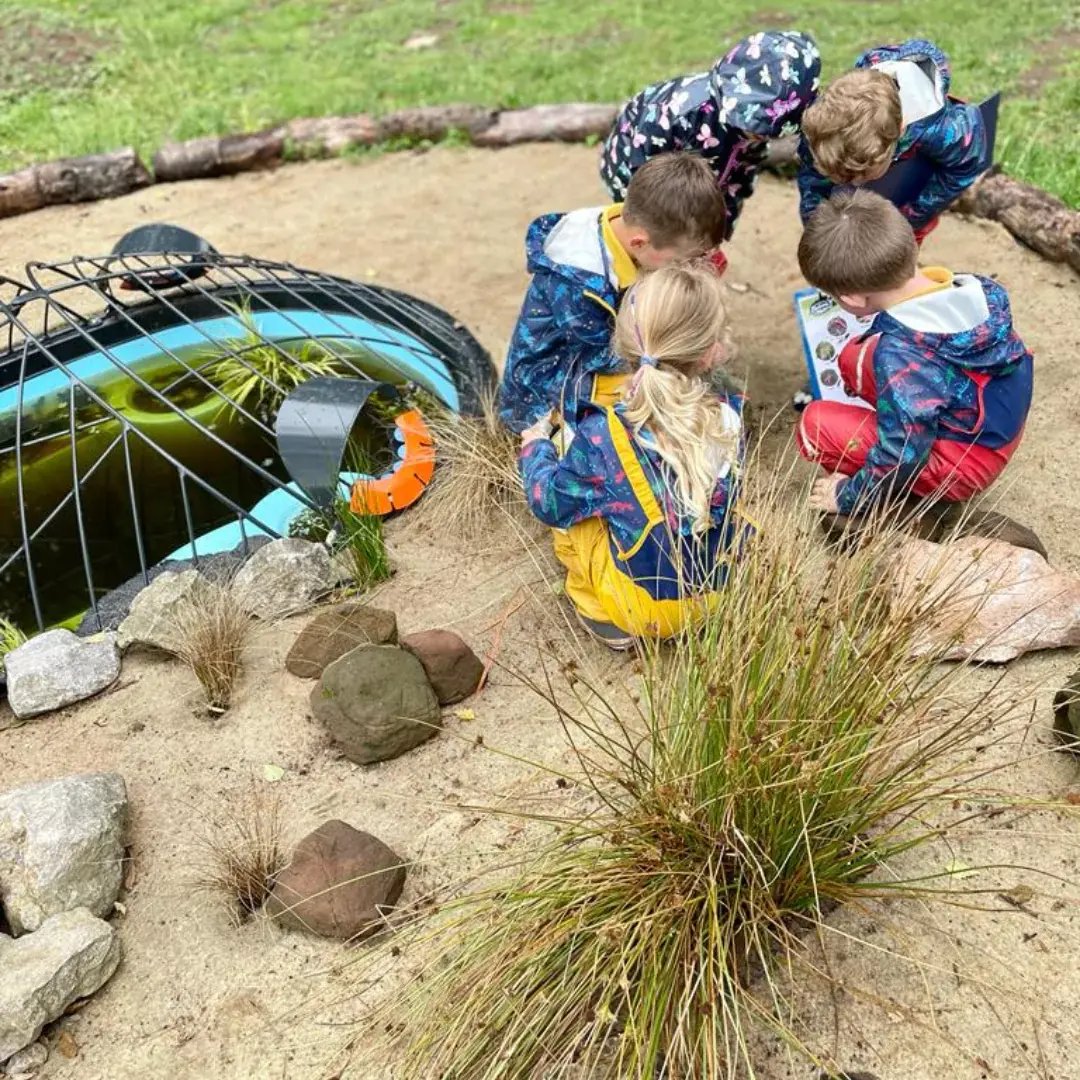
Teach the Value of Responsibility
By creating an outdoor learning or forest school space at your school, you can create so many opportunities for your students to take ownership of their school grounds, outdoor classrooms and green spaces. It might be that you choose to grow vegetables or flowers and provide students with the responsibility of nurturing them and watching them grow. Responsibility is a very important transferable soft skill for all aspects of their future lives.
The students at Cutnall Green C of E Primary School have an admirable sense of ownership for their forest school space. They helped to clear their school grounds of sticks in preparation for their fantastic Cabins for Schools log cabin to be built. The students are provided with so many opportunities to get involved and take responsibility for their environment and facilities.
Forest School Case Study
'We’ve been offering Forest School for the last 3 years and it’s been a huge success. Now, our cabin has vastly improved our experience! It's made a massive difference to us. This is because whatever the weather, we can get outdoors and still be sheltered from the rain, wind or snow. Also, it's made it possible for our wheelchair users to take part in Forest Learning all year round.'

Forest School &
Outdoor Learning

Nursery Buildings and
Pre-School Buildings
Frequently Asked Questions
How to create a forest school area?
- Choose a Natural Location: Select a wooded or outdoor area with a variety of natural resources (trees, plants, open space).
- Invest in Infrastructure: Install a log cabin as a central base for storage, shelter, and activities.
- Natural Learning Zones: Designate areas for exploration, play, and learning, like mud kitchens, nature trails, and outdoor classrooms.
- Safety and Accessibility: Ensure pathways, boundaries, and shelters are safe and accessible, with risk assessments in place.
- Curriculum Integration: Incorporate activities that promote outdoor learning, creativity, and nature-based skills.
The log cabin will serve as a hub for equipment, lessons, and protection from the elements, making it a vital investment for a sustainable, engaging forest school.
Does a forest school require planning permission?
Regulations and requirements can vary by region or country. It’s important to consult with local planning authorities or a planning consultant to understand the specific requirements for your area. In most cases, our forest school log cabins fall under permitted development rights, which do not require planning permission.
What is needed for forest school?
A great place to start when establishing a forest school is to provide durable shelter from the elements so learning can continue through all weathers and all year round. Our log cabins are the idea base for forest school.
What does a Forest School do?
A Forest School provides children with immersive, hands-on learning experiences in a natural outdoor environment. Its primary goals are to foster a connection with nature, promote personal and social development, and enhance practical skills through active exploration and play. Key aspects include:
-
Outdoor Learning: Children engage in activities such as bushcraft, wildlife observation, and nature-based problem-solving, which are designed to stimulate curiosity and creativity.
-
Personal Growth: The program encourages independence, resilience, and confidence through challenging yet supportive outdoor experiences.
-
Social Skills: Collaborative tasks and group activities foster communication, teamwork, and empathy among peers.
-
Practical Skills: Children develop life skills such as risk assessment, problem-solving, and physical coordination through practical, hands-on tasks.
Overall, Forest School aims to create a dynamic learning environment that complements traditional classroom education by integrating the natural world into the learning process.
What age is best for forest school?
Forest School is typically offered to early years pupils through to Key Stage 2, making it most commonly aimed at children between the ages of 2 and 7. This age group is thought to benefit the most from outdoor and practical play, which supports their cognitive and social development in a natural setting.
However, many schools, including Special Educational Needs (SEN) schools, extend Forest School programs to older students, sometimes up to the age of 12. This ensures that a wider range of learners can continue to benefit from outdoor education, hands-on learning, and the development of critical life skills beyond the early years.
What are the 6 Forest School Key Principles?
- Forest schools are a long-term process. They involve regular, structured sessions rather than infrequent visits to the outdoors
- Forest school takes place in a natural environment, not just the school playground. The most common setting is a woodland setting or forestry areas. This is to develop a child's relationship with the natural world
- Forest school programmes are user-centred designed to create a community for developing and learning together
- Forest schooling aims to foster confidence, resilience, independence and creativity in its learners
- Designed to offer opportunities for risks (which are supported and supervised by forest school leaders)
- Forest schools are to be run by qualified forest school practitioners who continuously maintain and develop their professional practice
News and Events Latest From Our Blog
Start The Journey Book a Video Meeting or Phonecall
Simply click below to get started on your initial quote with Cabins for Schools. Our team are happy to advise and help match the right school building to you.

Download Your Free Copy Of Our Pricing Guide
If your school needs extra space and you are researching building options, see some of the amazing spaces we have created for School and Education and get prices to help you plan for your project.


See Our Buildings Find Other Schools
Find other schools, nurseries and educational institutions across the UK who have already upgraded their space with a Cabins for Schools building.

Request a Site Survey
We're here to help you find the right outdoor classroom or log cabin for your school. A virtual or in person site survey can be helpful if you are not sure where to start with the process.



-1.png)


